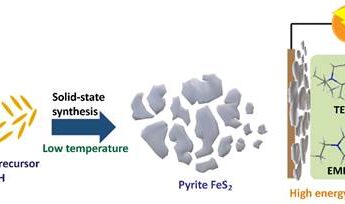We have gathered science news and science updates for our science weekly round-up from all around the globe which took place and became news headlines in the second week of June 2019.
-
1) The population of Pikachu-like creature Pika threatened.
- You all must remember the popular Pokemon character, Pikachu. A rodent Pika which just looks like Pokemon character has been found in the Himalayas. The ecological imbalance even affects this tiny creature and its population is dwindling. Recently an article published in Ecology and Evolution indicated that its population is threatened.
- A study done by IISc Bangalore in the Garhwal region, found out that the Royal Pika are very sensitive to change in temperature.
- Here you must be thinking, how does this tiny creature’s population affect us?
- In the food chain, Pika is a very essential part as it is eaten by snow leopard, brown bear, Tibetan fox, and many predator birds. Any deficit in Pika’s population will disturb the entire ecological balance.
-
2) Brushing your teeth will keep you safe from Alzheimer.
- If you regularly brush your teeth then you can be safe from Alzheimer. Alzheimer is an illness which affects memory. Researchers from the University of Bergen in Norway have found a link between gum diseases and Alzheimers.
- Although other aspects also affect Alzheimer, researchers have found DNA proof which tells us that the bacteria which causes gingivitis travels to the brain from the mouth. Which creates a protein that damages brain nerves, which altimately causes memory loss.
- You can steer safe from this by brushing your teeth regularly and flossing them as well.
-
3) An eco-friendly way to dry flowers and plants.
- All across the world, fresh and even dried flowers and plants have a huge market. In our country, over 50% of the flowers are exported. According to a study published in current science, drying flowers and plants in direct sunlight damages their colour and may even start to decay, but now researchers from Indian Agricultural Research Institute have devised a new way to dry them using a solar dryer.
- Using this, the properties and colours of the flowers can be preserved while drying them effectively. It consists of two chambers, a heating chamber, and a drying chamber. The heating chamber produces heat and the flowers are dried in the drying chamber.
- The drying chamber has exhaust fans which work on solar power and evaporates moisture quicker. This is also used to dry fruits, vegetables, and medicinal herbs.
-
4) Melting glaciers are a problem, but is it necessary.
- You must be hearing about how glaciers and ice caps are melting all over the world, even though scientists are worried about this, but some also deem it necessary. Due to changes in temperature across the world, rainfall is adversely affected especially in Asia as drought affected area is on a rise.
- The melting glaciers are replenishing some of the most prominent Asian rivers which are helping 22.1 crore people with their livelihood. According to the Science journal, the water from the glaciers is important for drought-affected areas due to social-economic reasons.
- Researchers have stated that every summer, glaciers give out 36 cubic kilometers of water which are enough to fill 1.4 crore Olympic sized swimming pools. This water then helps rivers to replenish themselves.
-
5) Hydrogen fueled air taxi ready for takeoff.
- Alaka’i Technologies have developed a hybrid between a luxury SUV and a drone which they’re calling Skai. Usually, electric vehicles are powered by batteries which add to the weight of the vehicle, but they have used hydrogen fuel cells to power the rotors and keep the weight of the vehicle light, at the same time. Skai can fly for about 644 kilometers and carry 454 kilograms on it.
These science weekly updates were for June 2019 2nd week’s interesting science news, we hope you liked and learned from these. Like and share our video. And for more science weekly updates don’t forget to subscribe to News in Science.








